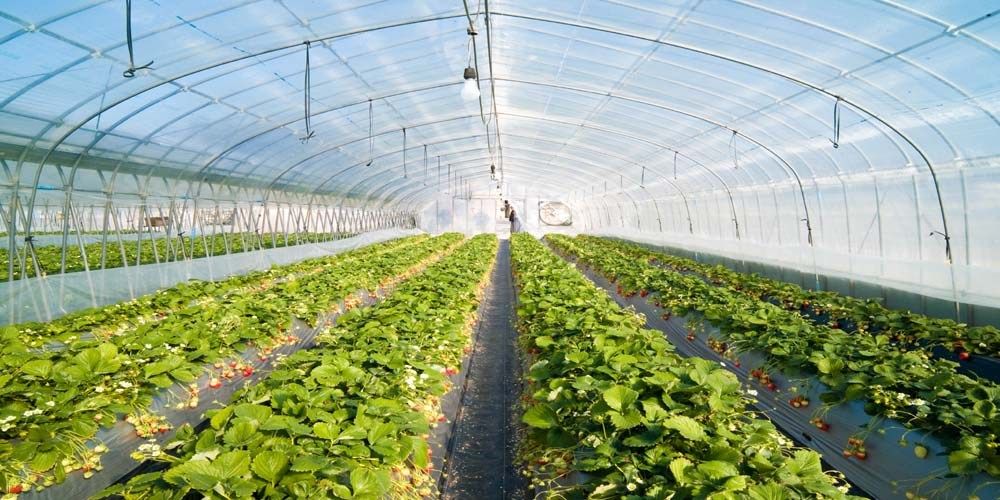Shift to Organic Farming: Economic and Social Sustainability is Possible through "Jaivik Kheti"
Bharatwa Editor
. 3 min read
Soil health is a crucial factor for sustainable development. The present agricultural practices are making a shift from intensive cultivation to sustainable development as it has been observed that excessive cultivation implemented in a plot of land not only reduces the production of crops over subsequent years but also degrades the capacity and health of the soil by reducing the quantities of nutrients that are required by the plant.

There is a study that proves that organic farming is gaining ground because there are higher chances of the agricultural products containing micro as well as macro-nutrients in the soil.
Also Read:
1. Technological Self-Reliance: Indian dependency on Pesticides
2. Reduce Use of Pesticides without Compromising Crop Yield
Today there is substantial growth in health consciousness, people are looking for best options but no matter what you are seeking still you can be easily cheated because there is no authentication label or monitoring agency which can validate food you are getting. Vegetables and fruits we buy from the supermarkets are preserved to give fresh look but are treated with chemicals.
It is not only food but also a lot of chemicals making their way towards our plates, this is one of the reason that we are advancing towards the diabetic country. Organic management helps to enhance agro-ecosystem health and biodiversity, more over food security of the nation is also possible through organic cultivation.
More farmers In India Are Going Towards Organic-Understanding & Implementation
If you are farmer and you want Healthy Soil, Healthy Plant, Healthy Animal, Healthy & Happy Human, Healthy Community then you have no other option than growing food organically; but returning towards "Jaivik Kheti" is not that easy either, you will have to take care of many steps like;
You need to be in touch with network of organic farmers and understand the principles of organic farming, it's advantages, soil testing and it's management, marketing of organic products, economical viability, Integrated Pest Management, Integrated Weed Management.
Organic Fertilizers Can Enhance Soil Fertility, Plant Growth, And Yield In A Remarkable Way
As opposed to inorganic fertilizers that are added to the soil to add nutrients to the soil to help in the growth of the plants. Instead of using these inorganic fertilizers that impair the crop and the soil health, besides containing soil contamination, the better choice is to use organic fertilizers that do not lead to soil degradation.
Compost or decomposed organic matter is an excellent choice when it comes to organic farming as it contains animal manure and hence boosts crop growth. Healthy microorganisms and nutrients are added to the soil and hence they improve the nutrient health and of the soil to a large extent.
There Are Many Advantages of Inter-Cropping And Crop Rotation
These practices not only increase the yield of the soil but also add valuable nutrients to the soil and maintain the quality of the soil for further cultivation and sustainable farming. Growing two or more kinds of crops either simultaneously in a plot of land or in alternating seasons is a great method for not degrading the potential of the soil.
However, the choice of crops needs to be made in such a way that the two crops are compatible in terms of not degrading the soil nutrients.
No-till Agriculture Offers Vast Sustainability Benefits
Excessively heavy machinery and other industrial agricultural operative methods may break up the soil into small granules thereby reducing extensively its water retention capacity. Indiscriminate plowing loosens the soil making it vulnerable to the chances of soil erosion and degradation.
Heavily tilled soil becomes susceptible to the top-soil erosion, therefore, leaving the soil unsuitable for cultivation after a few years because the topsoil is most valuable in terms of crop production. Topsoil that is loosened by excessive tillage is also prone to be washed away by rainwater, hence further reducing the nutrient capacity of the soil.
Rainwater Harvesting For Irrigation Water
These practices add to the ease and benefits of sustainable cultivation. Collecting and storing rainwater in reservoirs and tanks can be a way to make use in farming practices during phases of drought or water shortage. The trees in the watershed are that receives rainfall, should not be felled as the water retention capacity of the loose soil is very less.
Hence indiscriminate cutting down of trees is a strict no-no in sustainable organic farming. Using agricultural practices of drip-irrigation that makes sure that the water reaches all parts of the land ensures better output of crops.
Also Read:
1. The procedure of Soil Testing & Sampling for Laboratory Analysis
2. Natural & Homemade Insecticides to Save your Farm from Pests
Above are some of the practices that when carried out leads to the better health of the soil beside the quality and quantity of the agricultural produce as well. The main mantra behind successful organic farming is use natural resources in most efficient manner so that you can maintain vital requirement of your fields, enrich your soil to the extent required through green manuring, composting, vermicompost with earthworms, perfectly balanced ecosystem with plant diversity, planting different subsequent crops, drip irrigation and less use of heavy machinery etc.
More Stories from
15 Pakistani Movies That Will Make you Forget Bollywood
We have compiled the ultimate list of top 15 Pakistani movies that you shouldn't miss, these left a greater social impact.
Film Mafia, Fueling the Fire and Enraging Masses
Film Mafia of Bollywood is Fictionalizing history, Rubbishing Religion, Promoting Anti-National Spirit, Mocking Hindu Gods, Award Wapsi and Intolerance drive
How did India respond to Donald Trump's 25% tariff penalty on India?
Trade tensions between the United States and India have sharply increased as a result of this recent development. Know how India responds to Donald Trump's 25% tariff penalty on India.
Geoffrey Hinton's AI Warning: The Most Dangerous Invention Ever
AI is both beneficial and dangerous, depending on how it is developed, deployed, and regulated.
Unbelievable Facts about World History that will surprise you
Human history and the natural world are filled with mysteries, marvels, and strange truths that challenge our understanding. In this article, we will explore some unbelievable facts about world history.





